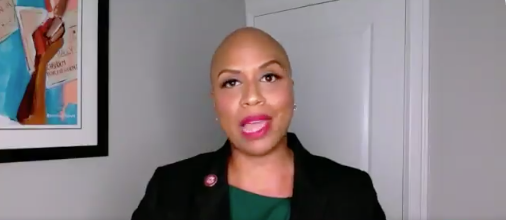Three radical Democrat congresswomen introduced a bill on Thursday that would declare “structural racism” a public health crisis, and force the federal government to create a center to tackle racial disparities in the health care system.
The bill, called the “Anti-Racism in Public Health Act,” was introduced by Sen. Elizabeth Warren and Rep. Ayanna Pressley, both of Massachusetts; and Rep. Barbara Lee of California.
It would require the federal government to begin actively developing an “anti-racist health policy,” citing the coronavirus pandemic and ongoing protests as proof that the U.S. must change to better help minority communities.
“It is time we start treating structural racism like we would treat any other public health problem or disease: investing in research into its symptoms and causes and finding ways to mitigate its effects,” Warren said in a statement.
“My bill with Representatives Lee and Pressley is a first step to create anti-racist federal health policy that studies and addresses disparities in health outcomes at their roots,” she continued.
This legislation would create a “National Center for Anti-Racism” as part of the Centers for Disease Control and Prevention to research the health impacts of racism.
As part of this center, at least three regional locations would be dedicated to education the public and coordination health care services, the bill states.
The legislation would also create a “Law Enforcement Violence Prevention Program” at the CDC to combat “police brutality.”
“For far too long, our federal government has failed to recognize and address the structural racism that has devastated Black and brown communities and denied access to quality health care,” Pressley, a member of the so-called “Squad,” said in a statement.
“With the COVID-19 pandemic unveiling and exacerbating racial disparities in health outcomes, it is time we recognize and treat structural racism and police brutality as the public health crises that they are,” she said.
Pressley pointed to data in her own district that found black and Hispanic people represent 65% of coronavirus cases despite making up only about 44% of Boston’s population.
Research has confirmed that minorities are disproportionately affected by COVID-19, but mostly because they tend to have more underlying health conditions compared to white Americans, according to various studies.

